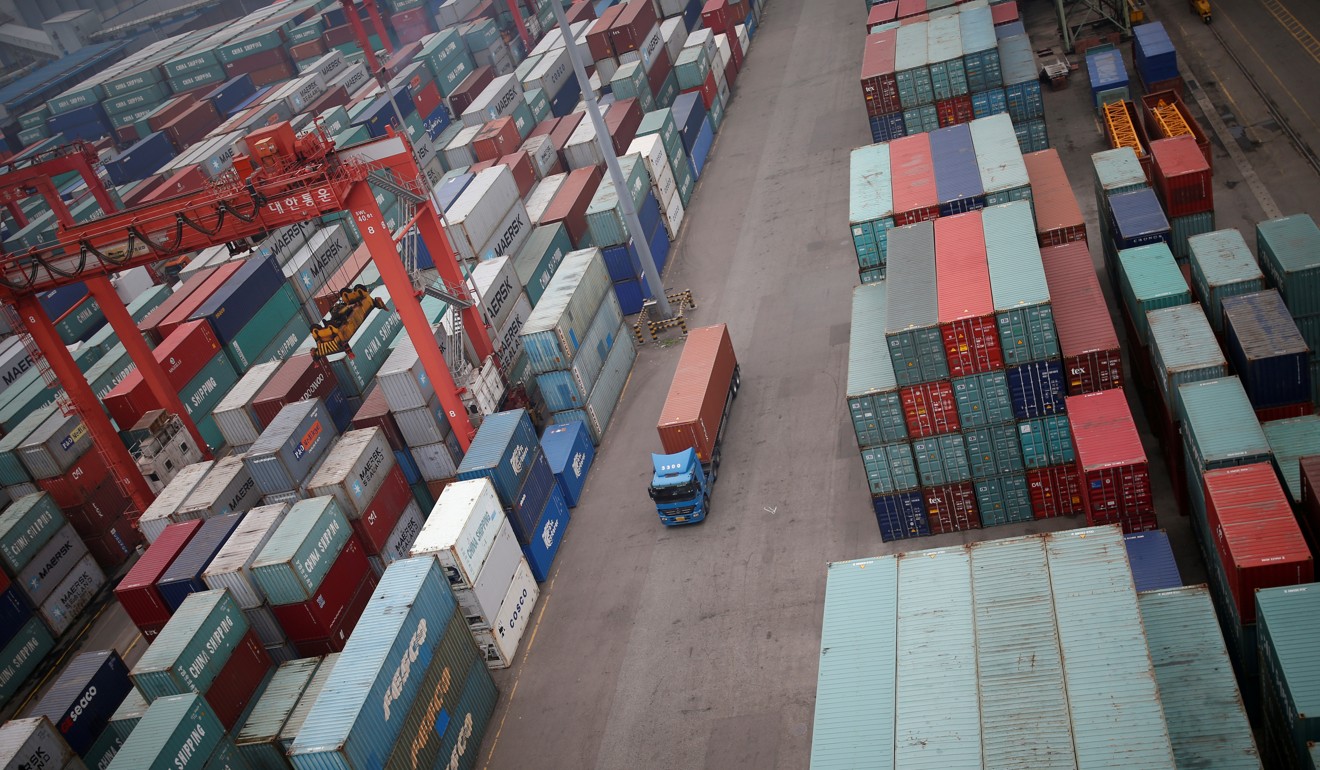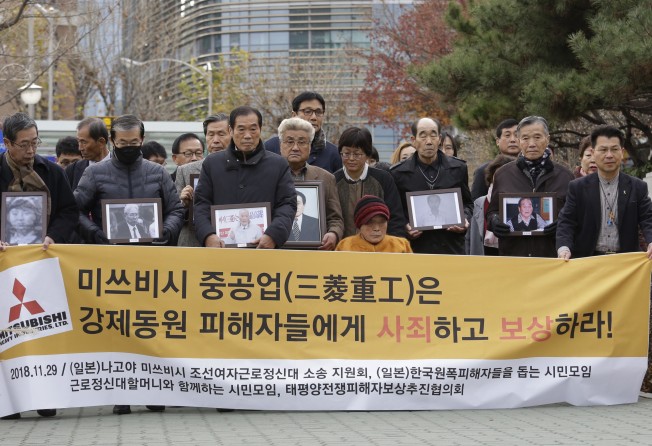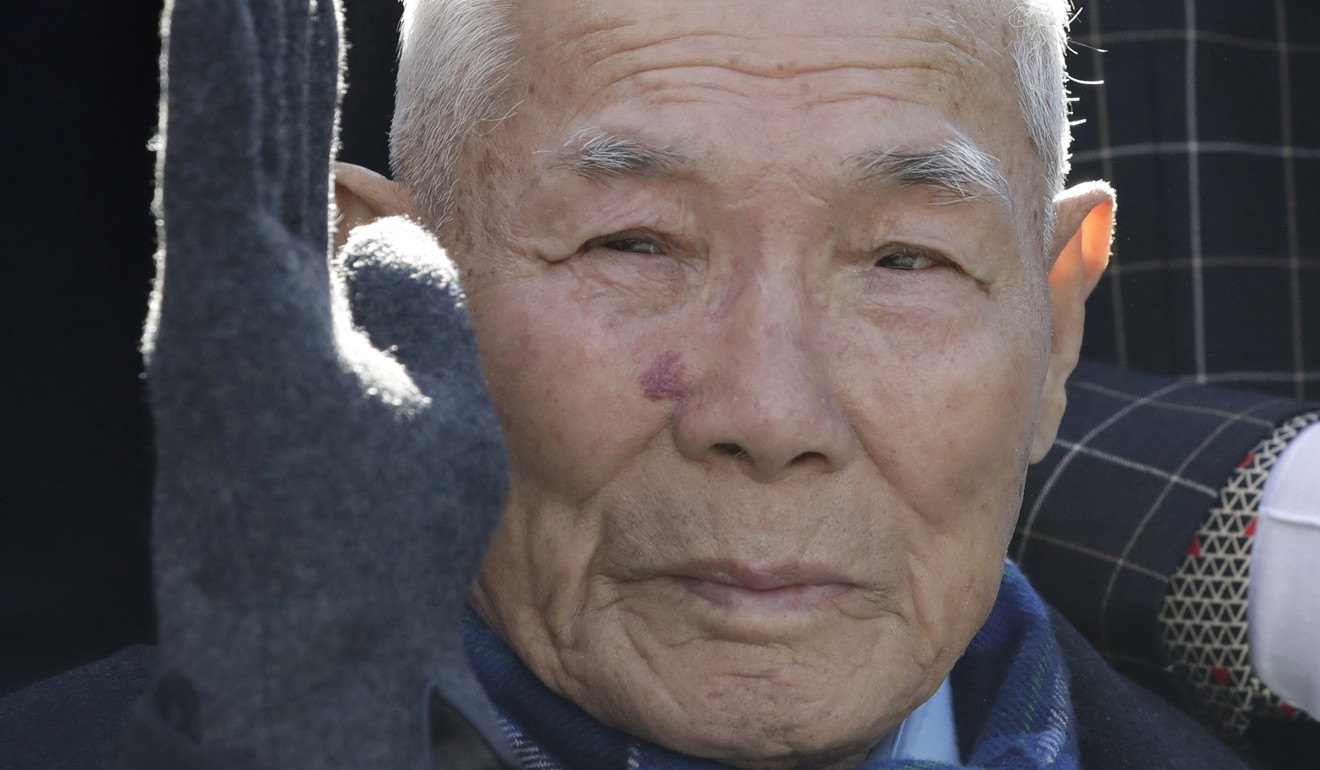
Japan moves to curb exports to South Korean tech firms, in escalation of forced labour row
- The exports include chemicals used in chips and smartphone production and regulations will be tightened from July 4
- South Korea has condemned the plan as ‘economic retaliation’, saying it will take countermeasures and file a complaint with the World Trade Organisation

Japan said on Monday it will tighten regulations on the export to South Korea of several chemicals used in chip and smartphone production, as both countries navigate worsening bilateral tensions caused by, among other things, a row over wartime forced labour.
The move, which takes effect from July 4, comes after South Korean courts ordered Japanese firms to compensate people forced into wartime labour, an issue Tokyo says was resolved when the countries resumed diplomatic relations decades ago.
“The export control system is built based on international relations of trust,” Japan’s Ministry of Economy, Trade and Industry (METI) said in announcing the move. “After reviews by relevant ministries, it must be said that the relations of trust between Japan and South Korea have been significantly harmed.”
The new restrictions apply to three chemicals as well as transfer of manufacturing technologies, removing them from a list that effectively allowed expedited export.
It means that exporters will now have to apply for permission for each batch they wish to export to South Korea, a process that takes around 90 days each time, local media reported.
South Korea’s Industry Minister Sung Yun-mo criticised the move on Monday as “economic retaliation” and threatened to take “necessary countermeasures under international and domestic laws, including filing complaints with the World Trade Organisation”.
“[The government] will continue to communicate closely with local firms to minimise any impact, and will take this event as an opportunity to beef up the competitiveness of the country’s parts, materials, and equipment [sectors],” Sung told reporters.
But Japan’s deputy Chief Cabinet Secretary Yasutoshi Nishimura said the curbs were due to security concerns, adding that it is “in compliance with WTO rules and not retaliation” against the wartime labour compensation order.
METI said it would also begin soliciting public comment on the removal of South Korea from a list of “white” countries that face minimal restrictions on technology transfer with national security implications.

“With South Korea, the trust which is the very foundation of the export control has been undermined,” said Jun Iwamatsu, the official in charge of export control at the trade ministry.
The chemicals affected by the move are fluorinated polyamide, which is used in the manufacture of displays, photosensitising agent resist, which is used in chip manufacture, and hydrogen fluoride, which is used to clean chips.
The Federation of Korean Industries released a statement on Monday condemning the regulation, claiming the decision will have an adverse impact on economic ties between the two countries.
“The South Korean business community expresses concern over the Japanese export regulation as it could harm the cooperative relationship between Seoul and Tokyo,” the lobby group said.
Japan and South Korea are both democracies, market economies and US allies, but their relationship has been strained for decades as a result of Tokyo’s brutal 1910-45 colonial rule over the Korean peninsula.
Tensions have deepened after a series of rulings from South Korean courts ordering Japanese firms that used wartime forced labour to compensate victims.
Last month, Tokyo proposed the issue be put to arbitration under the terms of an agreement signed by the two countries in 1965, when ties were normalised.
South Korea countered with a proposal for local and Japanese firms to set up a voluntary compensation fund, which Tokyo flatly rejected as “unacceptable”.
When relations were normalised, Tokyo agreed a reparations package that included grants and cheap loans intended to cover victims of various wartime policies. Japan argues that package should have permanently resolved the issue.

Deputy chief cabinet secretary Yasutoshi Nishimura told a regular briefing that the move was “in accordance with international export regulations and World Trade Organisation rules”.
“In addition to the fact that it has become difficult to work on export control with South Korea under a relation of trust, we have also seen inappropriate cases in connection with export control as it relates to South Korea,” he told reporters.
Analysts said the measure could harm Japanese producers, and shares in Japanese resist makers nosedived in some cases more than 3 per cent after the announcement, despite a rally on the market overall. The news also sent Samsung down 0.74 per cent by midmorning, with LG Electronics plunging 2.52 per cent.
“It’s a statement of how incredibly frustrated Tokyo is in dealing with Seoul,” said Brad Glosserman, deputy director of the Centre for Rule-Making Strategies at Tama University in Tokyo. “The belief in Tokyo is that the South Koreans are forever going to move the goalposts and seek to maintain the moral and political high ground, and thus Japan is not prepared to make a deal for fear that it will never be a final agreement.”
Kazuyoshi Saito, a chip analyst at IwaiCosmo Securitiesm said the move “could have a short-term negative impact on Japanese manufacturers … whose sales to major South Korean producers constitute 10 to 20 per cent of their overall sales”.
He pointed out that the measures do not amount to an export ban, but would make shipments more complicated.
“At this point, the expected impact is a slowing of export procedures, which may temporarily affect both South Korean makers and Japanese suppliers,” he said.
Additional reporting by Park Chan-kyong, Kyodo and Bloomberg